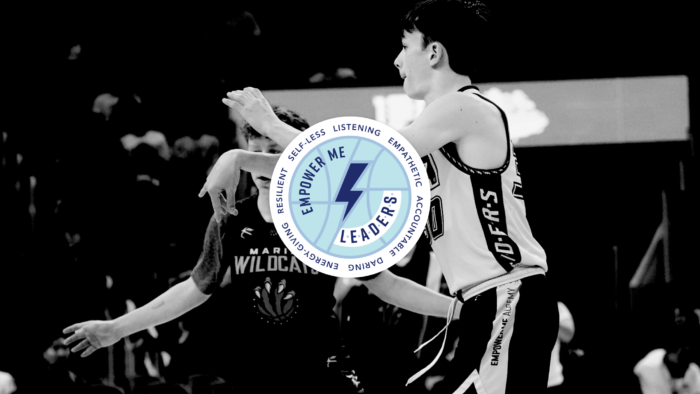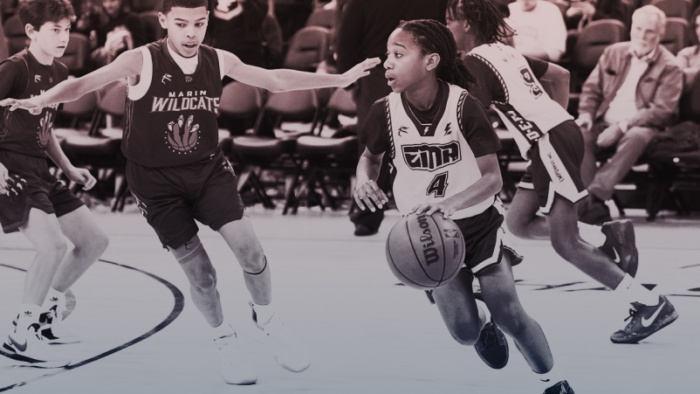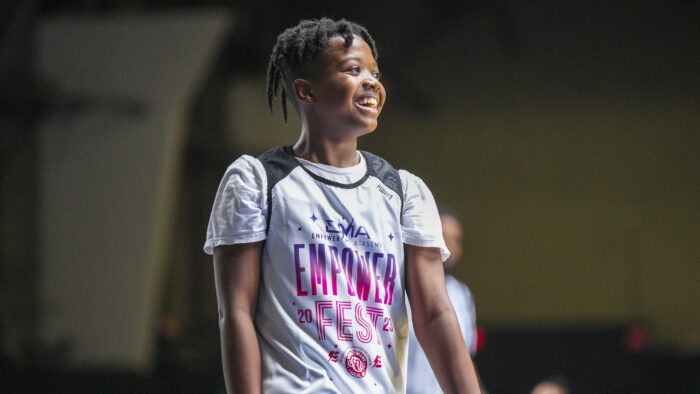At Empower ME Academy, we’re committed to guiding our students on their unique journeys, whether they aspire to become professional players, aim to enhance their skills for the sheer love of the game, or want to simply have fun.
Regardless of their future plans, our mission revolves around instilling in students the four core values: trust, relationships, integrity, and inclusion. These values serve as the foundation upon which our children can build a successful future.
In this blog, we’ll explore the lessons that students and aspiring players alike can learn from WNBA and NBA players, all through the lens of the four core values we teach here at EMA- trust, relationships, integrity, and inclusion.
Trust: The Cornerstone of Excellence
Trust is a fundamental value at EMA, and it’s no different in the world of professional basketball. WNBA and NBA players understand that trust is the cornerstone of any successful team. On the court, they rely on their teammates to make the right passes, take the crucial shots, and play their roles effectively.
This trust is built through hours of practice, open communication, and a shared commitment to the team’s success.
From them, we can learn that trust isn’t just about believing in others; it’s also about being trustworthy.
By consistently showing up, putting in the effort, and being reliable, they can build trust with their teammates, coaches, and peers, both in sports and in life.
Relationships: The Heart of Teamwork
Relationships are the first step to the creation of community, which is invaluable to both EMA and the professional leagues. Players in the WNBA and NBA understand the importance of maintaining healthy relationships with their teammates and many coaches since they can impact performance on the court and shape how they are perceived.
It is important to recognize that we are all different, and this is part of growing healthy teamwork.
A negative reputation stemming from strained relationships can cast a shadow over an entire team, as the palpable tension among teammates who aren’t on good terms can be felt by everyone. This can even lead to a divisive atmosphere within the team, with members feeling pressured to take sides, which creates an unsafe environment lacking trust.
Students can learn from the conflicts in the WNBA and NBA the importance of maintaining relationships with a variety of people in order to fulfill an ultimate goal, whether that is the championships or something smaller.
Ultimately, strong relationships will build a strong sense of community and better collaboration.
Integrity: The Bedrock of Character
Integrity is a non-negotiable principle at EMA and in professional basketball. WNBA and NBA players are held to high standards of sportsmanship, honesty, and ethical conduct by their leagues. Players are subject to serious consequences if they break codes of conduct, like fines or game suspensions.
Professional players often exemplify integrity by displaying sportsmanlike behavior, win or lose, and refraining from blaming their team or disparaging opponents when facing the media. While the stakes are lower for youth sports, integrity is still important and goes beyond following a set of rules, but having respect for the game and peers.
Inclusion: Diversity is a Strength
Inclusion is celebrated in the WNBA and NBA, as these leagues bring together players from diverse backgrounds, cultures, and demographics, just as it’s EMA’s goal to bring together children from all walks of life.
WNBA and NBA players understand that diversity is a source of strength and that embracing different perspectives leads to better teamwork.
Students and aspiring players can learn that by accepting people as part of their community, irrespective of their starting points, they can foster an inclusive environment where everyone feels valued and respected.
Just as professional players collaborate seamlessly on the court, students can embrace diversity and work together to achieve their goals, learning from each other’s unique experiences and perspectives.
Conclusion
While we strive to maintain the essence of youth sports without overemphasis on professionalism, it’s worth acknowledging the alignment of EMA’s four core values with the standards set by the professional leagues.
Providing children with sources of inspiration is crucial, and it is evident that their technical prowess does not solely define MVPs, but also their embodiment of these core values.
After all, being a great player extends beyond skill; it encompasses character, making these values truly essential for both success and personal growth.





 Gift Now
Gift Now